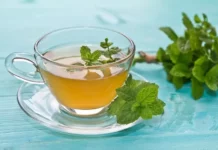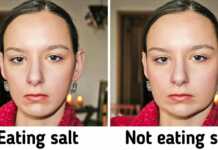Our scalp has to produce a certain amount of oil to stay moisturized and protect our hair by creating a thin barrier between it and the environment. But the excessive sebum may cause a lot of discomfort, starting from a lack of volume and dull hair to an irritated scalp and problems with dandruff. Luckily, if you identify the cause of the excessive oiliness, you can get it under control.
We at ViralSection understand how frustrating and irritating washing your hair every day may be, so we decided to learn more about the causes of greasy hair and share them with you.
1. You wear tight and sleek hairstyles too often.
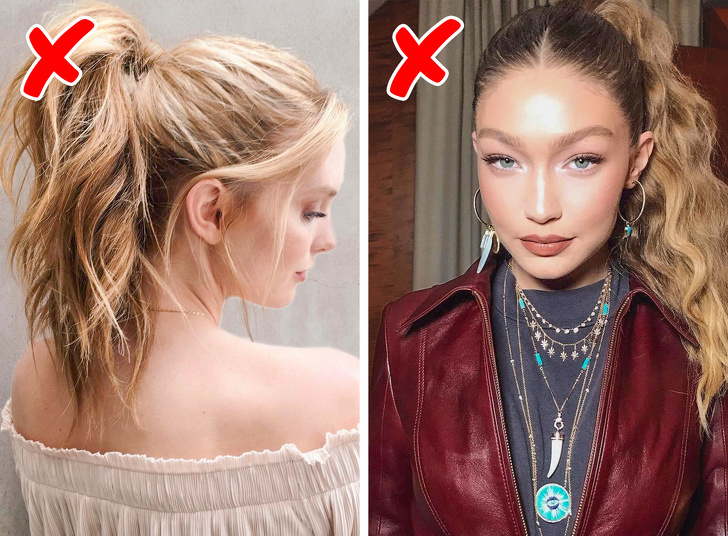
© Wiese/face to face/FaceToFace/REPORTER
While going with a chic ponytail may seem like a good way to hide your greasy hair, it’s actually the other way around. Your hair may look neat but this hairstyle causes your sebum to accumulate under your hair and its roots. Sleek hairstyles require a lot of styling products that smooth and weigh down your hair, making it get oilier quicker.
What to do: Don’t overdo it with styling products and hairstyles that require a lot of brushing and touching your hair.
2. You don’t rinse your hair with cold water.
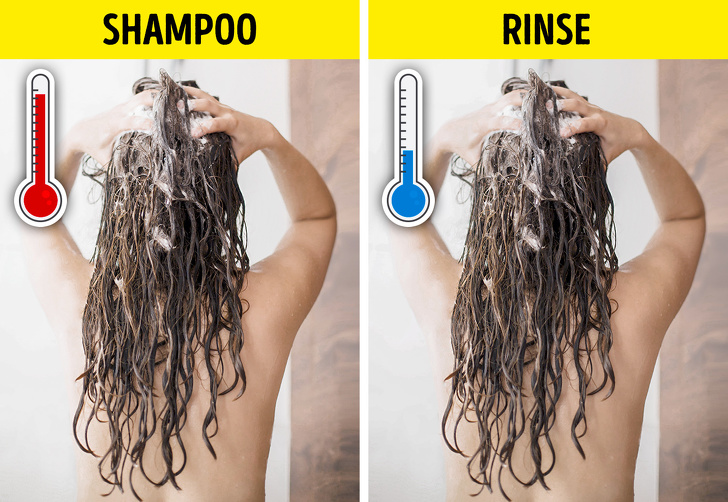
© depositphotos.com
Hot water is great for opening up the pores and hair cuticles and removing the dirt, but it may be damaging to your hair. It washes off sebum and may dry your scalp too much, causing dandruff and excessive oil production.
What to do: It’s better to choose warm water when it comes to shampooing and conditioning, and rinse your hair with cold water after you’re done washing it to close the hair cuticle.
3. You choose the wrong hair care products.
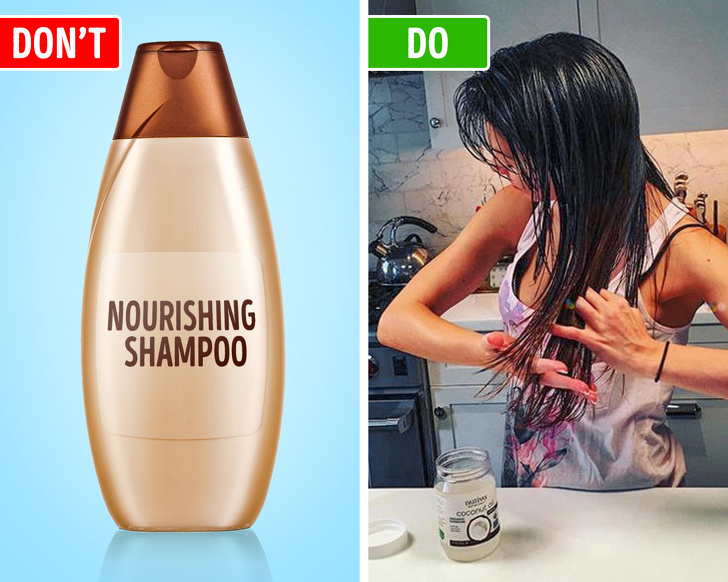
© 0000001/Reporter
Experts advise to be careful with the products that are labeled as “intensive” because they may overweight your hair making them flat. They may cover the hair in a thin protective layer that makes your hair look more greasy if you have thin hair or an oily scalp
What to do: Experts advise avoiding products that are designed for dry or damaged hair. They usually cover the hair in a thin protective layer that makes your hair look more greasy if you have thin hair or an oily scalp.
It’s also a good idea to use a deep cleanser, a couple of times a month, to clean your scalp from the build-up of sebum and cosmetic products and to help your hair stay fresher longer. You can also try some natural remedies like applying coconut oil to nourish your hair, but decrease its oiliness at the same time.
4. You brush and touch your hair too often.
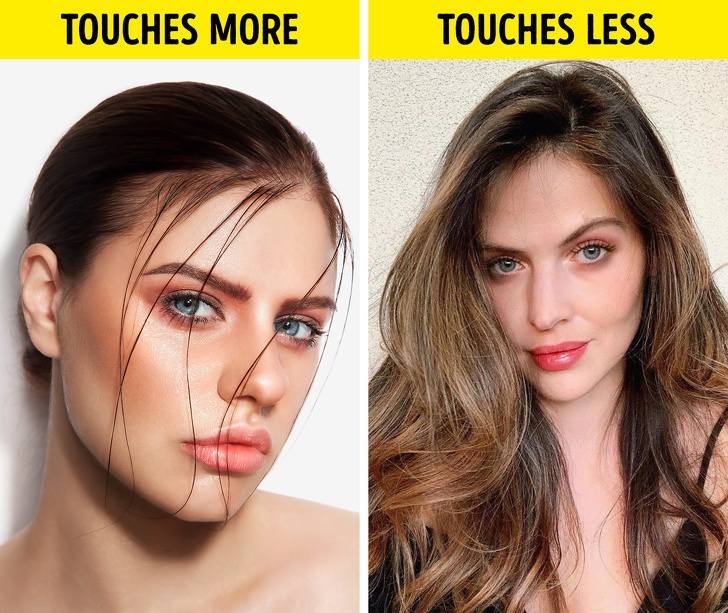
© face to face/FaceToFace/REPORTER
When you touch your hair, you transfer oils and bacteria from your hands to your hair that end up making your hair look more greasy. Brushing your hair too often also does more harm than good. Constant brushing makes sebum spread throughout your hair and makes it look less voluminous and fresh.
What to do: Make a habit of not touching your hair with your hands, especially subconsciously when you’re nervous or during a conversation. Don’t overbrush your hair: experts suggest that 2 times a day may be enough for people who don’t have very curly or textured hair, and always do it with a clean brush.
5. You’re too stressed.
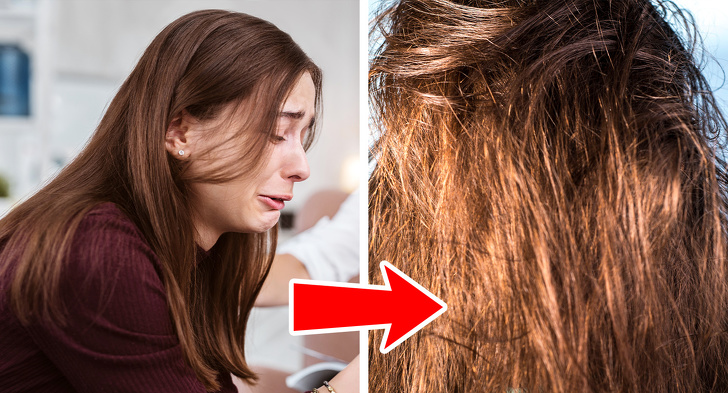
© shutterstock.com
Stress makes your body produce more cortisol. This hormone triggers your skin to produce more sebum and, as a result, it looks and feels more oily. Stress may also be one of the reasons for dandruff that may lead to a greasy scalp as well.
What to do: You can’t do much about it unless you change your lifestyle and try to manage your stress. Using special hair products will help battle dandruff and will make your scalp feel more comfortable while you’re dealing with difficult life situations.
6. You wash your hair too often.
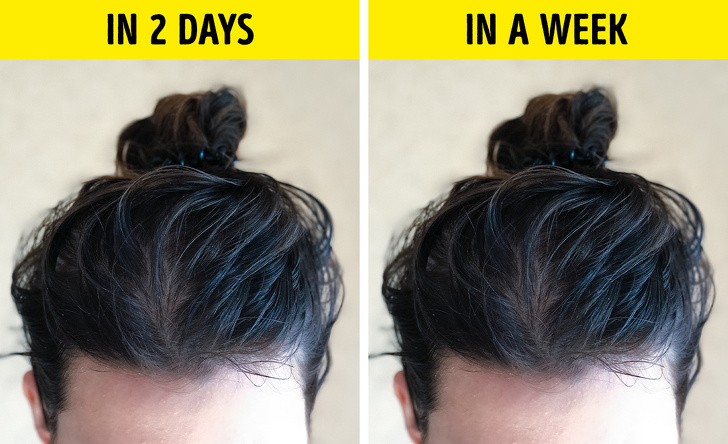
Although it may sound a bit absurd, the more you wash your hair, the greasier it may become. A hair biologist shares that billions of good bacteria that promote the healthy pH of our skin, live on our scalp. And when we wash our hair too often, we may upset this delicate balance and cause sebum glands to produce more oil, especially if we use the wrong hair care products.
What to do: Try to gradually decrease the number of times you wash your hair and use shampoos that don’t over dry the scalp. Experts advise paying attention to the area you live in and the hair problems you have. For example, city dwellers are more likely to have to wash their hair more often than people who live in rural areas because of the residue that ends up on their hair.
7. It’s just the way your body works.
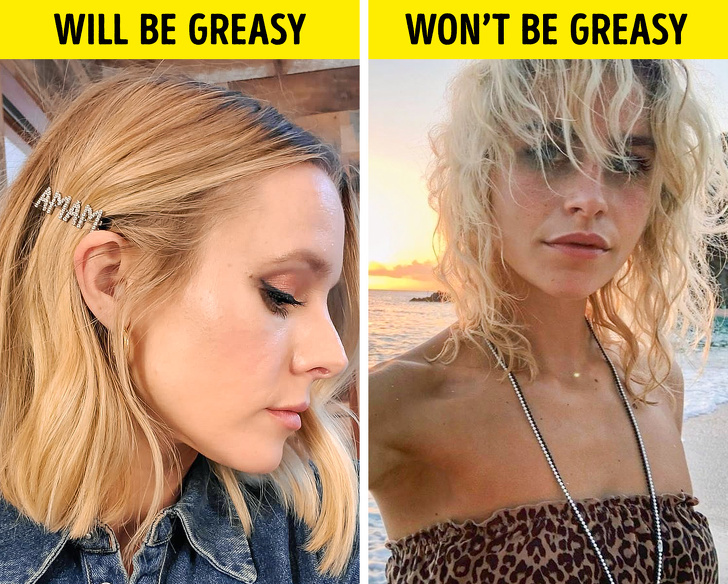
© Instagram/Sipa USA/East News
Some hair types are just more prone to getting oily quicker than the others. For example, people with straight hair are more likely to suffer from greasiness than people who have textured or wavy hair. It happens because sebum slides down the hair and is more visible at the roots of the hair.
Keep in mind that some health problems, like hormonal imbalances and seborrheic dermatitis, may cause excessive sebum production.
What to do: Make sure to go to the doctor if something is bothering you or if you notice any unusual changes in the way your hair looks.
How often do you have to wash your hair? What methods have helped you deal with hair greasiness? Share your experience in the comments.
Preview photo credit depositphotos.com, shutterstock.com











